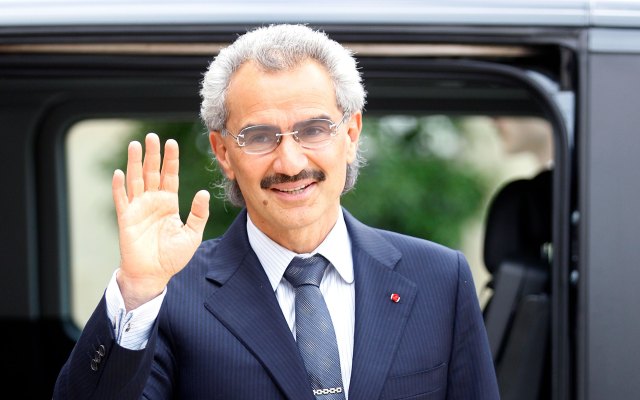Shares of Saudi Arabia’s Kingdom Holding, an international investment company controlled by Prince Alwaleed Bin Talal, soared in January when he was freed after two months of being held captive at a Ritz Carlton in Riyadh, Saudi Arabia.
Turns out investors may have celebrated too soon.
As people following the story may recall, Prince Alwaleed was arrested in early November with hundreds of other businessmen and at least 10 other princes. The roundup was described as a sweeping corruption investigation but widely seen as an effort to consolidate power by Crown Prince Mohammed bin Salman, a son and the top adviser of King Salman, who succeeded his half brother and became king of Saudi Arabia in January 2015. Indeed, the crown prince had announced the creation of a new anti-corruption committee — which he headed up — just hours before the arrests were ordered.
New reports suggest that though most of those who were arrested have now been released, they are not in control of the holdings they once were, including Prince Alwaleed. A detailed weekend report by the New York Times, for example, states that “members of the royal family, and relatives, advisers and associates of the detainees” say those who were kidnapped were coerced and physically abused in some cases, and that billions of dollars in private wealth were transferred to Crown Prince’s Mohammed’s control.
Two associates of Prince Alwaleed also told the Times that he continues to live under armed guard and that his time at the Ritz is “something he wants to forget.”
That won’t be easy, according to a separate report in the WSJ yesterday that said the Saudi government now has final say over decisions at Kingdom Holding and that, further, the prince’s personal investment portfolio is also under government control.
Prince Alwaleed — who long maintained a high profile, even pledging in 2015 to give away $32 billion as part of investor Warren Buffett’s famous Giving Pledge — has also reportedly agreed to step back from his informal role as a broker for foreign businesses and governments looking to invest in Saudi Arabia, says the WSJ.
Before being ushered out of view in November, the prince was considered to be one of the world’s richest men, with Kingdom Holding owning or having owned meaningful positions in satellite TV networks, as well as in News Corp. (a stake it mostly sold), Citigroup (shares of which it has owned since 1991), and a growing number of tech companies.
The prince and Kingdom Holding — of which he was believed to own 95 percent — first invested $300 million in Twitter in 2011, two years before the company went public. In 2015, he invested another $50 million to increase his ownership in Twitter and, as of 2016, remained one of the company’s largest shareholders.
In 2013, Kingdom also acquired 2.5 percent of China-based retailer JD.Com, which went public on the Nasdaq the following year and whose shares have more than doubled since.
Prince Alwaleed and Kingdom further acquired a stake in the car-hailing company Lyft in early 2016, buying some of the shares of its earlier investors Andreessen Horowitz and Founders Fund.
What happens to Kingdom’s stakes in these companies now is an open question. It’s far from the only one, either.
For example, an investor conference in Riyadh last October that was organized by Crown Prince Mohammed and attended by several thousand people — including billionaire investor Peter Thiel, Blackstone Group cofounder Stephen Schwarzman, SoftBank founder Masayoshi Son, and United States Treasury Secretary Steven Mnuchin — was designed to showcase Saudi Arabia’s growing influence in the business world.
Yet a newly delayed initial public offering of the world’s largest oil company, Saudi Aramco, has some wondering who, exactly, is in charge. Crown Prince Mohammed has been pushing Saudi Arabia to sell 5 percent of Saudi Aramco as part of a broader economic reform program. He also reportedly wants to list its shares in New York, as well as on Saudi Arabia’s Tadawul exchange.
But according to a weekend report in the The Financial Times, those assessing the company are struggling to arrive at the $2 trillion valuation sought by the crown prince. Further, senior Saudi ministers and Saudi Aramco executives have said privately that London might be a better fit than New York, says the FT’s report, which suggests the offering, once expected this year, could now be delayed until 2019.
